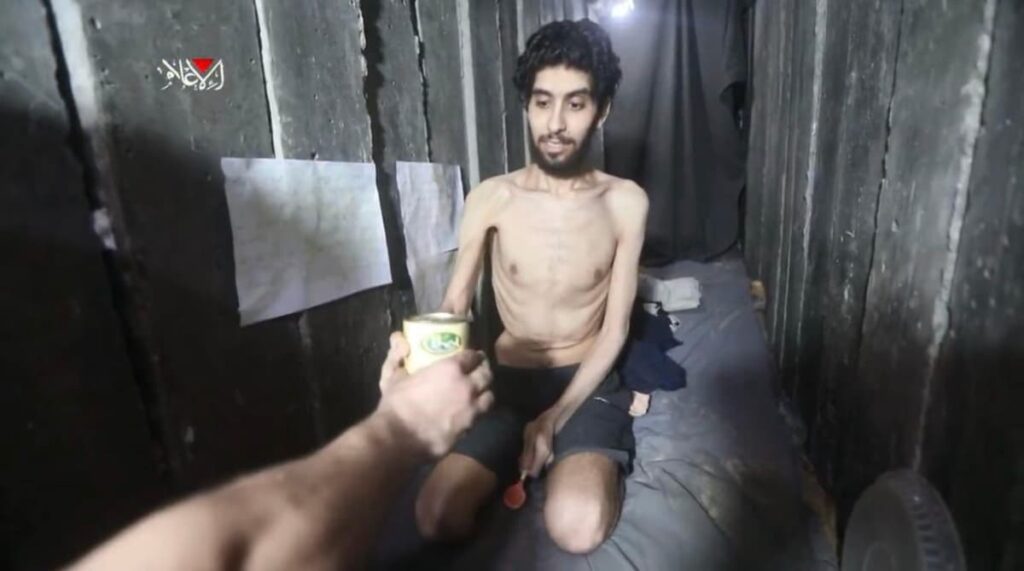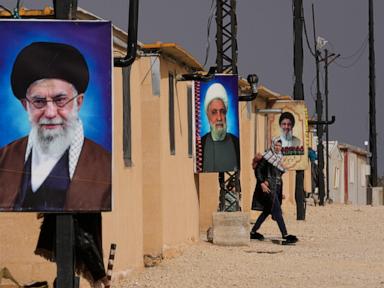
Israel is confronting a pivotal moment as it considers its next moves in Gaza. Following 22 months of conflict, Prime Minister Benjamin Netanyahu and his senior security advisers are preparing the public for a potential final assault on Hamas. This operation raises concerns about the safety of remaining hostages, especially in light of distressing videos released by Hamas over the weekend, showing two emaciated Israeli captives in dire condition.
In a significant meeting on Tuesday, Netanyahu gathered key figures, including strategic adviser Ron Dermer, Defense Minister Israel Katz, and Chief of Staff of the Israel Defense Forces (IDF), Lieutenant General Eyal Zamir. The three-hour discussion focused on strategies for the next phase of military action. According to a brief statement issued after the meeting, the IDF is prepared to act on any decisions made by the cabinet, which is set to convene on Thursday to determine the course of action.
The release of the videos has intensified pressure on Israeli leadership. Jonathan Dahoah Halevi from the Jerusalem Center for Security and Foreign Affairs remarked that Hamas miscalculated the impact of their videos, hoping to sway public opinion against the government. Instead, the move appears to have galvanized support for an escalation of military efforts in Gaza.
U.S. Stance and Strategic Implications
The U.S. government is monitoring the situation closely but has refrained from making definitive statements regarding Israel’s potential actions. Tammy Bruce, spokesperson for the U.S. Department of State, emphasized the priority of ensuring the safe return of hostages, including the remains of two Americans. She noted that the goal is to prevent Hamas from regaining control over Gaza.
Despite the gravity of the situation, Israeli officials acknowledge the challenges in balancing military objectives with the safety of hostages. Halevi pointed out that Israel’s options are limited, suggesting that military action in areas previously avoided due to hostage presence might become necessary.
Israel’s military strategy has historically avoided decisive actions that could jeopardize hostages. “To win the war, all that Hamas needs to do is survive,” Halevi stated, indicating that the ramifications of a prolonged conflict could extend far beyond Gaza.
General Zamir has reportedly presented various options for continuing military operations. Following the meeting, the Prime Minister’s office reiterated that the IDF is ready to execute any cabinet decision. This reassurance comes amidst speculation about potential resignations within the military leadership, particularly concerning actions that could endanger hostages.
Public Sentiment and Political Pressure
In Israel, public opinion is sharply divided. Anti-government protests have emerged, with many advocating for negotiations with Hamas aimed at securing a ceasefire and the release of hostages. Critics argue that such a deal could allow Hamas to maintain its influence and potentially launch further attacks, reminiscent of the events on October 7, 2023.
Israeli officials, including Miki Zohar, a member of Netanyahu’s Likud party, have openly acknowledged that any military escalation could put hostages at further risk. “We have no other choice but to defeat Hamas,” Zohar stated, asserting that capitulating to Hamas’s demands would undermine Israel’s long-term security.
The complexity of the situation is underscored by the stark choices facing Israeli leaders. Halevi likened the dilemma to a “hijacked plane” scenario: should they proceed with a forceful rescue attempt at the risk of harming hostages, or negotiate with the hijackers?
As Israel navigates these challenging waters, the decisions made in the coming days could have lasting implications for both its security and the fate of the hostages still held by Hamas. The impending cabinet meeting is critical, with the world watching closely as Israel considers its next steps.






